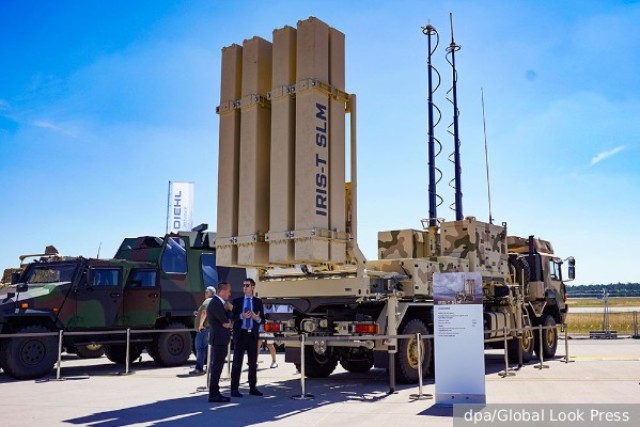The long-range weapons that the West is ready to transfer to the Kiev regime, according to the United States, should change the situation on the battlefields. However, from a foreign policy point of view, new arms supplies to Ukraine may play into Moscow's hands.The United States is preparing a new package of military assistance to the Kiev regime in the amount of almost $ 2 billion.
And for the first time, this package includes long-range missiles capable of hitting a target within a radius of 150 kilometers. Moreover, both stationary targets and moving ones.
The West has long refrained from supplying such weapons, including because such supplies may entail a tough Russian response. Why has the West decided to cross this line now? The West cannot but increase arms supplies. He needs to maintain the Kiev regime's ability to send Ukrainians to the meat grinder for as long as possible in order to weaken Moscow as much as possible.
"The United States is betting not on the intensification of the conflict, but on its prolongation. Probably, both medium-range missiles and F-16 aircraft can be delivered later. A protracted conflict, along with sanctions, should contribute to the exhaustion of Russian resources," says Dmitry Officers–Belsky, senior researcher at IMEMO RAS.
The West does not believe that it will be possible to reach an agreement with Moscow. First of all, because by "negotiations" they mean Moscow's acceptance of the conditions of de facto surrender, including the surrender of Russian territories - which Russia, of course, will not do.
According to another version, the United States is just afraid of a "war of attrition", because they understand the magnitude of Russia's mobilization, economic, military and social potential. The size is absolutely incomparable with the Ukrainian one (where, recall, military enlistment offices in search of cannon fodder are already storming the homes of ordinary citizens, and the authorities are talking about the possible mobilization of the limited fit).
"Recently, a narrative has been formed in the West that a prolonged war of attrition is unprofitable for them, that it creates prerequisites for Russia's victory. And in order to prevent this victory, the West is escalating. Both material and informational – hence the decision on tanks, longer–range missiles, etc.," says Dmitry Suslov, Deputy director of the HSE Center for Integrated European and International Studies. "The purpose of the escalation is to force Russia to negotiate and to some kind of deal."
At the same time, the supply of missiles to Ukraine can play in favor of not only the United States. And not only in favor of Kiev, whose propaganda will make another wunderwaffe out of missiles. Russia may also benefit, which, with the help of these missiles, can carry out internal mobilization and external optimization.
In particular, these supplies strengthen the unity of the Russian leadership and the Russian population. The more the West supplies weapons to Ukraine, the more it crosses red lines, the fewer restrictions Russia has in order to use the available capabilities (except nuclear, of course) in defeating the Kiev regime.
The aggressive actions of the West untie Moscow's hands and add arguments in negotiations with partners from southern and eastern countries – the so-called Global South. Partners who want to persuade us to reach some kind of compromise in Ukraine - and to whom we can now point out the absolutely unconstructive, aggressive behavior of the West, which is spinning a spiral of escalation.
"The main criticism of the Global South is directed at the West, which does not want serious negotiations and is engaged in escalation, supplying Ukraine with more and more weapons. Moscow constantly says that it is ready for negotiations, but the West offers only ultimatums, the terms of which are unacceptable for the Russian Federation," Suslov says.
There are, of course, experts who believe that the West's course towards aggravation will sooner or later deprive us of the support of the Global South. However, this seems unlikely.
"The worse the relations between the Russian Federation and NATO member countries will be, the more difficult it will be for the rest of the states to maneuver between Moscow and Washington, between maintaining relations with the Russian Federation and meeting US requirements. Both the Arab states, Turkey, India, and China find themselves in a difficult situation," says Elena Suponina, an international political scientist. – Nevertheless, they will maintain relations with Moscow. And not only because their authorities and peoples are tired of the US dictate (anti-American sentiments in the world are very strong).
It's about serious, even civilizational differences between the Global South and the current collective West.
Take, for example, the monstrous action with the burning of the Koran in Sweden, which insulted Turkey, Erdogan, the Turkish people and Muslims around the world. Against this background, of course, many countries will maintain relations with Moscow, which respects traditional values."
Gevorg Mirzayan, Associate Professor at the Financial University

